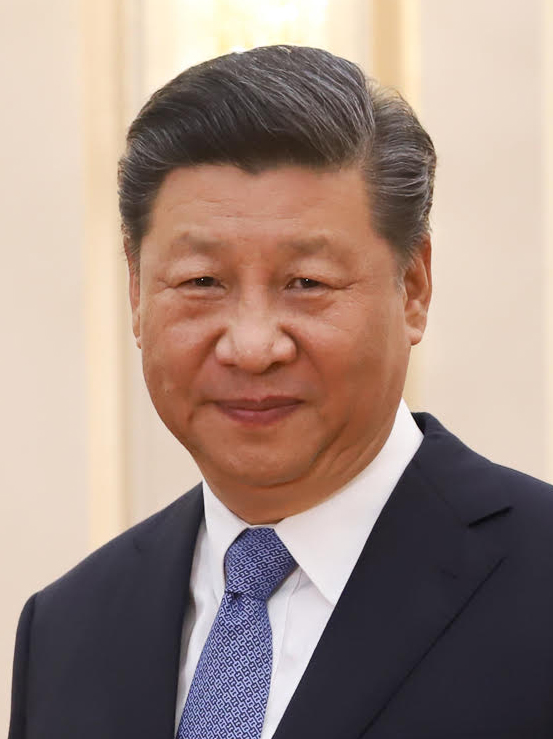Can we call Xi a dictator?

Xi Jinping is outraged because Biden and Baerbock publicly call him a dictator. China has different terms and a different understanding of what constitutes an autocrat. And yet the controversy is about more than words - namely, about the sovereignty of interpretation of political narratives and who is allowed to spread them internally and externally.
The outrage comes as a surprise to many people in the West: Because US President Joe Biden and now also Germany Foreign Minister Annalena Baerbock called Chinese President Xi Jinping a dictator The respective ambassadors of the countries in Beijing were promptly summoned. The description of Xi as a dictator was "absurd", "irresponsible", a "serious violation of the political dignity of China" and also "an open political provocation". The Oxford English Dictionary defines the term "dictator" as "absolute ruler of a state“ So what is Xi if not a dictator? And why is he suddenly reacting so sensitively to this? After all, Article 1 of the Chinese constitution states that the party is committed to “upholding the democratic dictatorship of the people”.
“The term dictator has a slightly different meaning in Chinese than in German,” explains Daniel Leese, professor of Sinology at the University of Freiburg. His main areas of expertise include the history and politics of the
Modern China. In Chinese there is the Terms “renmin minzhu zhuanzheng” (人民民主专政)for the democratic dictatorship of the people and “ducai zhe” (独裁者) for the dictator who rises above all others"The terms therefore have different levels. Since the 19th century at the latest, Ducai zhe has had negative connotations in the sense of a tyrant or a despot. As a rule, no one would use that as a self-description, while the dictatorship of the proletariat has positive connotations from the Communist Party's point of view."
Even Jiang Zemin did not want to be a dictator
In fact, previous Chinese heads of state refused to be called dictators by Western observers. “You think I am a dictatorship?” Jiang Zemin the journalist Mike Wallace in broken English during the famous “60 Minutes” interview from 2000In his view, the term was "so absurd that it seemed to come from the stories of One Thousand and One Nights," laughed the then 74-year-old. He was only a member of the Politburo and nothing was decided without the consent of the other members, which meant that he could not possibly be a dictator.
"The question of the dynamics between leader and people and party and people was interpreted differently in different phases of the Communist Party," says Leese. Mao had anchored the idea of the dictatorship of the people as a theoretical cornerstone in the political system of the People's Republic. In the Marxist-Leninist-Stalinist-Maoist sense, a dictatorship is democraticbecause it empowers the communists to do whatever they consider necessary to serve the "people" - or rather, the people who matter: the working class. At the same time, however, the Great Chairman identified himself, only half-ironically, with Qin Shi Huang, the first emperor, who for centuries was considered a model of a violent despot in China. "After Mao's death, the consensus prevailed that no person should be allowed to rise above the others in the party, so no one-person rule in the party “Lesse explains the terror that Mao left in Chinese politicians like Deng Xiaoping.
Terms like democracy are being revalued
Which brings us back to Xi Jinping. He has Embedment in a ruling collective, to which Jiang Zemin referred, is increasingly eroded. He has lifted the term limit in his favour. He has eliminated rivals within the party apparatus. His "Xi Jinping Thoughts" have become an ideological must, and Xi is also promoting a personality cult that his predecessors would never have dared to try. "There is less and less participation by the Chinese people, but also within the party, as the cases of the missing Chinese foreign minister and the defense minister show," says Angela Stanzel, a researcher at the German Institute for International and Security Affairs (SWP).). “These are all signs of a dictatorship. That is why the term is justified.”
The outrage at being called a dictator also has to do with Xi wanting to control which narratives about him dominate on the world stage – and he is doing so more confidently than ever. The fact that in China Do not allow yourself to be lectured about your own circumstances from outside wants to, has been a central theme throughout his entire term in office. Xi Jinping wants to retain sovereignty in interpretation and at the same time re-evaluate concepts, such as democracy.
Baerbock wanted to send a signal to the USA
Was the German Foreign Minister aware of all these things when she declared on Fox News that Xi was a dictator just like Putin? What is certain is that she deliberately wanted to send a signal in various directions. "Of course, one can criticize the German Foreign Minister for saying something like that in a public setting and hurting Chinese sensitivities," says Angela Stanzel. "But I believe that Baerbock above all, sent a signal to the USA and its allies and not necessarily to China, namely that we share the assessment of Xi as the leader of an authoritarian state."
"The elephant in the room is that there is almost no autocrat who calls himself a dictator," explains Leese. In critical Chinese circles, however, Xi Jinping will be Since the abolition of term limits, he has also been referred to as Ducai zhe, that is, as a dictator in our sense. "I think that is also where part of the current thin-skinnedness comes from."
